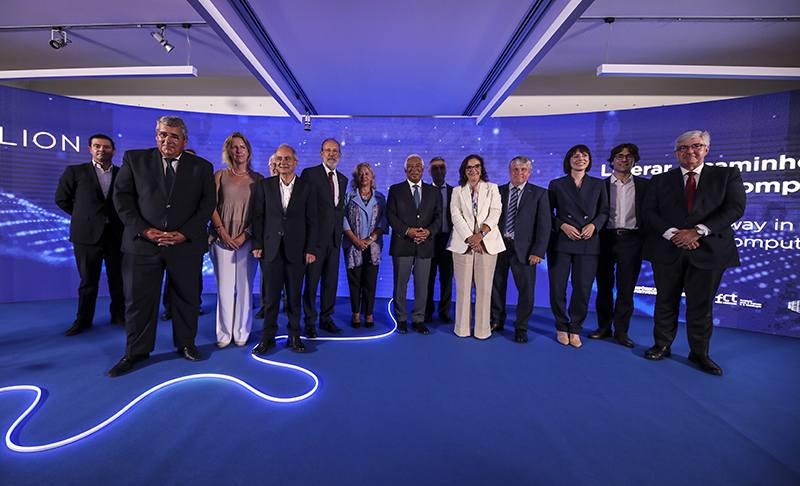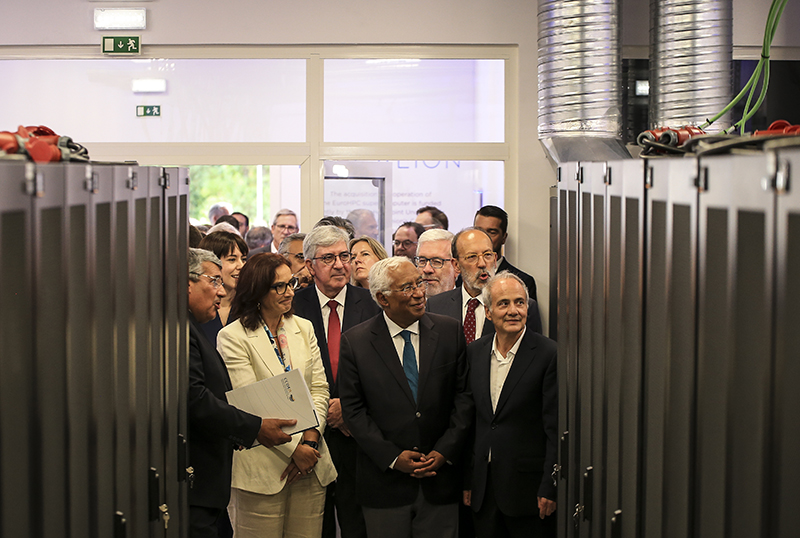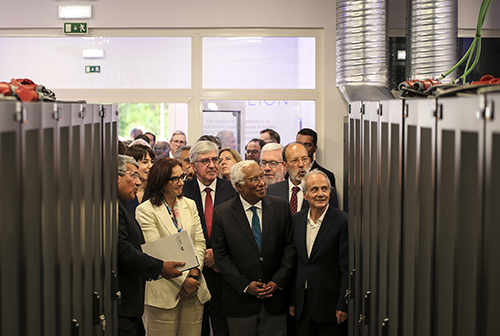On arriving at the School of Architecture, Art and Design at the University of Minho in Guimarães, large blue screens with the message “Deucalion: Leading the European way in supercomputing” guided the guests to the room that had been prepared to host the inauguration of the new Portuguese supercomputer.
The clock struck 14:30. It was time for all eyes to turn to the pulpit, which was about to be occupied by a wide range of personalities invited to speak.
Deucalion is Portugal’s fastest ever supercomputer, capable of performing 10 million billion operations per second, and it is taking the country’s computing capacity to the next level. If there were any doubts about the power of the new machine, the Prime Minister himself made a point of dispelling them: “It solves in an hour what a normal computer would take 20 years”. António Costa believes that Deucalion “will allow the country to take a new step forward” and turn “made in” into “created in” Portugal.
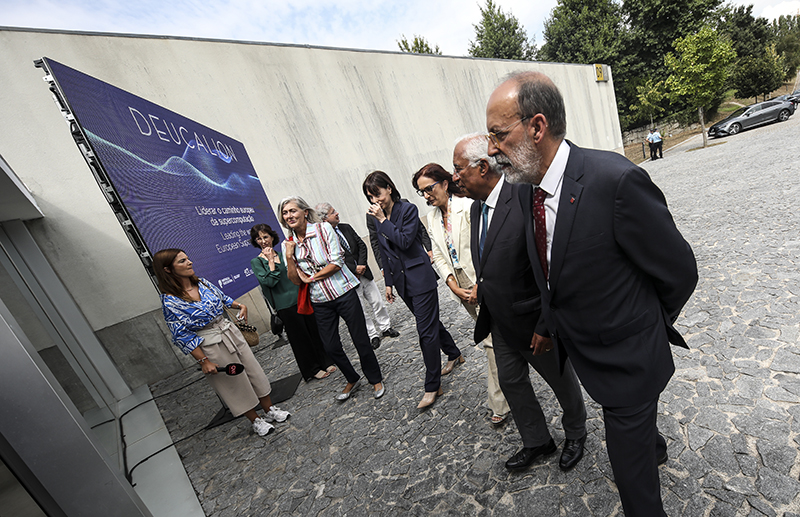
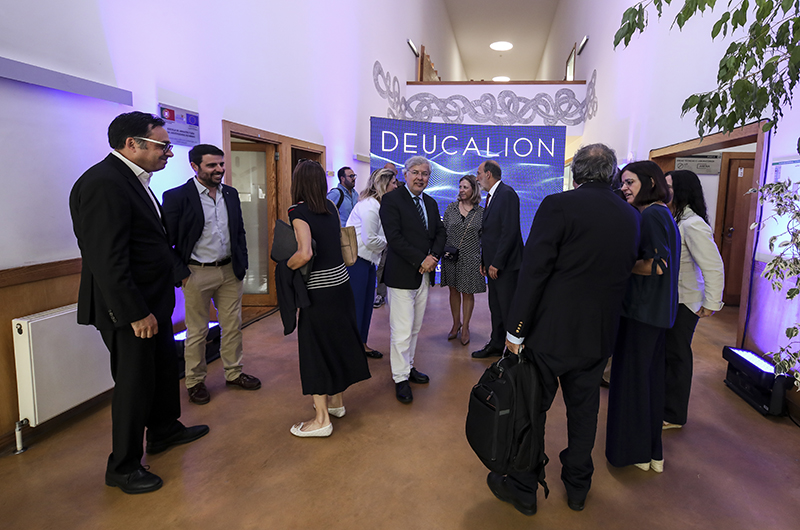
“We are once again making history in science by inaugurating Deucalion,” said Elvira Fortunato, Minister of Science, Technology and Higher Education, during her speech. The machine opens “doors to a new national and European infrastructure, guaranteeing science by all and for all”, she added, confident that it will be “decisive in the advance of humanity and science”.
Deucalion will be dedicated to carrying out simulations and modeling in various scientific fields: from Artificial Intelligence, to personalized medicine, the design of new pharmaceuticals, the discovery of new materials, observation of the earth and oceans and the fight against climate change.
One of the machine’s great weapons is the ARM microprocessors, which excel in energy efficiency – the big bet of the European organization EuroHPC JU, which is responsible for part of the funding for this project, together with the Foundation for Science and Technology (FCT). It’s the first “green” supercomputer in Europe, but “it certainly won’t be the last”, said Anders Dam Jensen, the executive director, who couldn’t help but stress that the date (September 6) marked “a good day for European supercomputing”.
The arrival of Deucalion will fill some of the gaps in the country’s computing capacity, allowing for “more and better research” in Portugal, explained Madalena Alves, director of the FCT. It’s a synonym of “innovation” and “boosting competitiveness”, which will very soon translate into access for the scientific and academic community, SMEs and the public administration.
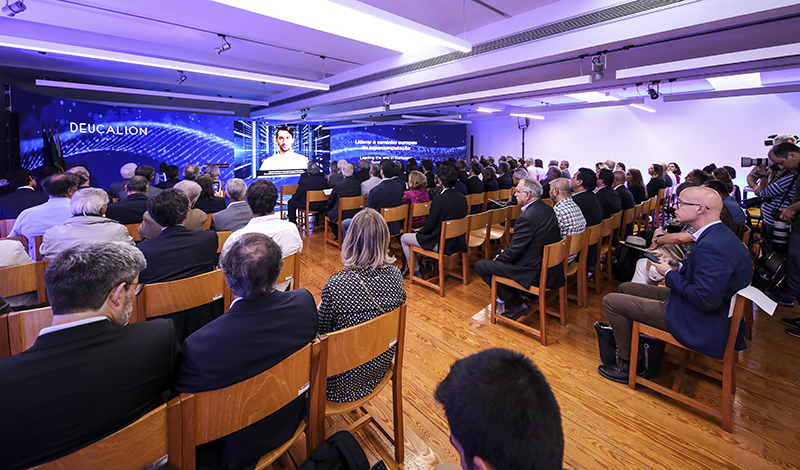
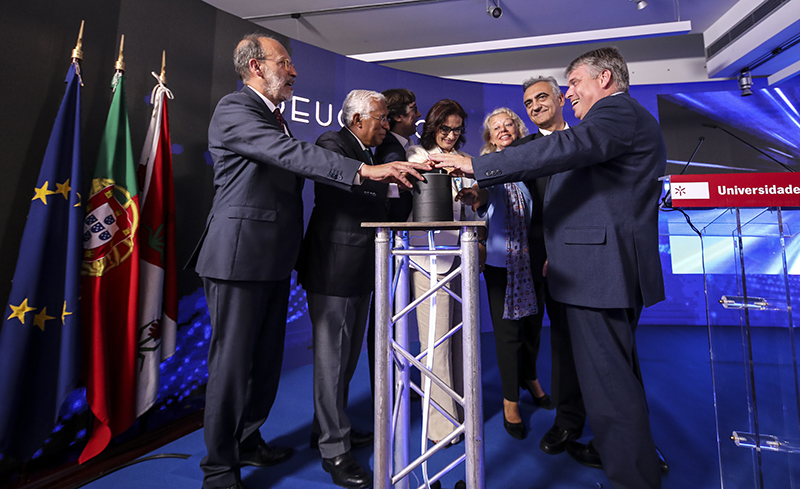
In the front row, among members of the Portuguese government, the president of FCT and the executive director of EuroHPC JU, was also Josep Maria Martorell, representing the Barcelona Supercomputing Center. To the surprise of the audience, he was accompanied by the Spanish Minister for Science and Innovation, Diana Morant, as a sign of appreciation for the “joint work between Portugal and Spain”.
Among the personalities who took to the stage, there was unanimous agreement that Europe is making great progress towards autonomy and sovereignty in supercomputing, with Portugal’s new supercomputer serving as the latest example. “We are becoming one of the best regions in the world for high-performance computing,” said Thomas Skordas, Deputy Director General of DG – Connect.
After the speeches and a few photos, the room’s speakers blared: “We are now entering the future of innovation and science”. From the screen at the back of the stage, the audience watched the Deucalion presentation video. At the end, the absolute silence gave way to loud applause, as the anticipation grew for the next moment – certainly the most eagerly awaited: the tour of the facilities. This sealed the ceremony with a golden key.
